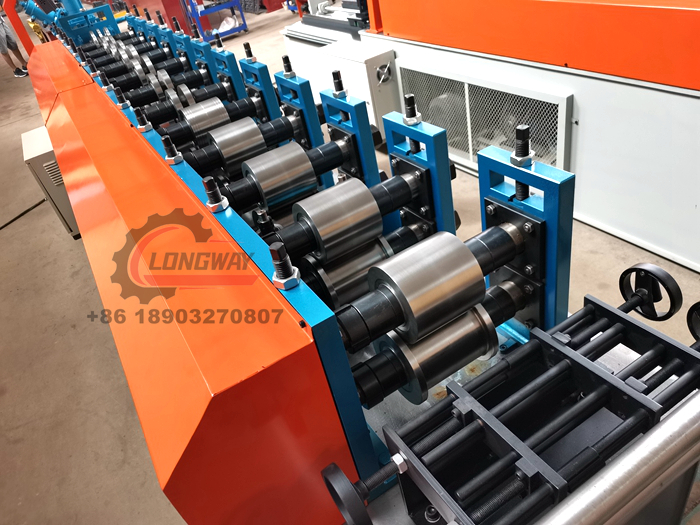eps sandwich roll forming machine
The Evolution of EPS Sandwich Roll Forming Machines
In contemporary manufacturing, efficiency and sustainability are at the forefront of technological innovations. One such advancement that embodies these principles is the EPS (Expanded Polystyrene) sandwich roll forming machine. This machine is designed to produce high-quality sandwich panels, widely used in construction and insulation applications. With the demand for lightweight, durable, and energy-efficient building materials on the rise, the EPS sandwich roll forming machine plays a pivotal role in meeting these needs.
Understanding EPS Sandwich Panels
EPS sandwich panels consist of two external layers—typically made from metal or other rigid materials—sandwiching an expanded polystyrene core. This unique structure provides excellent thermal insulation, soundproofing, and structural integrity, making these panels highly sought after in various sectors such as residential, industrial, and commercial building.
The Role of Roll Forming Machines
Roll forming is a continuous bending operation where a long strip of metal or other materials is passed through a series of paired rolls. The EPS sandwich roll forming machine incorporates this technology to create panels with specific shapes and profiles. The process is characterized by its efficiency, allowing manufacturers to produce high volumes of panels with consistent quality and precision. The integration of EPS in the sandwich panels enhances their insulation properties and overall performance, making them ideal for modern construction practices.
Innovations in EPS Sandwich Roll Forming Technology
eps sandwich roll forming machine

One of the major advancements in EPS sandwich roll forming machines is the automation and control systems integrated into the manufacturing process. Modern machines are equipped with advanced PLC (Programmable Logic Controller) systems that optimize production parameters, ensuring minimal downtime and improving overall efficiency. Additionally, the use of sensors and real-time monitoring helps in maintaining product quality and reducing material waste.
Moreover, the latest EPS sandwich roll forming machines boast increased flexibility in design. Manufacturers can easily adjust the machinery to produce panels of different thicknesses, lengths, and surface finishes, catering to a diverse range of customer requirements. This adaptability is crucial in a rapidly changing market where consumer preferences and building standards continually evolve.
Environmental Benefits
The use of EPS sandwich panels contributes to sustainable building practices. The lightweight nature of these panels reduces the overall weight of building structures, leading to lower transportation and handling costs. Moreover, EPS is recyclable, and its manufacturing process generates minimal waste. By promoting energy-efficient buildings, EPS sandwich panels contribute to reduced energy consumption over the lifecycle of a structure, aligning with global efforts to combat climate change.
Conclusion
The EPS sandwich roll forming machine represents a significant advancement in the construction industry, combining efficiency, versatility, and sustainability. As the demand for energy-efficient and environmentally friendly building materials continues to escalate, the role of such machines in manufacturing high-quality EPS sandwich panels becomes increasingly vital. Businesses investing in these technologies not only enhance their operational capabilities but also contribute positively to a sustainable future in construction. Ultimately, the evolution of EPS sandwich roll forming machines exemplifies how innovation can drive progress toward more efficient and sustainable manufacturing practices in the building sector.
-
Roof Panel Machines: Buying Guide, Types, and PricingNewsJul.04, 2025
-
Purlin Machines: Types, Features, and Pricing GuideNewsJul.04, 2025
-
Metal Embossing Machines: Types, Applications, and Buying GuideNewsJul.04, 2025
-
Gutter Machines: Features, Types, and Cost BreakdownNewsJul.04, 2025
-
Cut to Length Line: Overview, Equipment, and Buying GuideNewsJul.04, 2025
-
Auto Stacker: Features, Applications, and Cost BreakdownNewsJul.04, 2025
-
Top Drywall Profile Machine Models for SaleNewsJun.05, 2025








